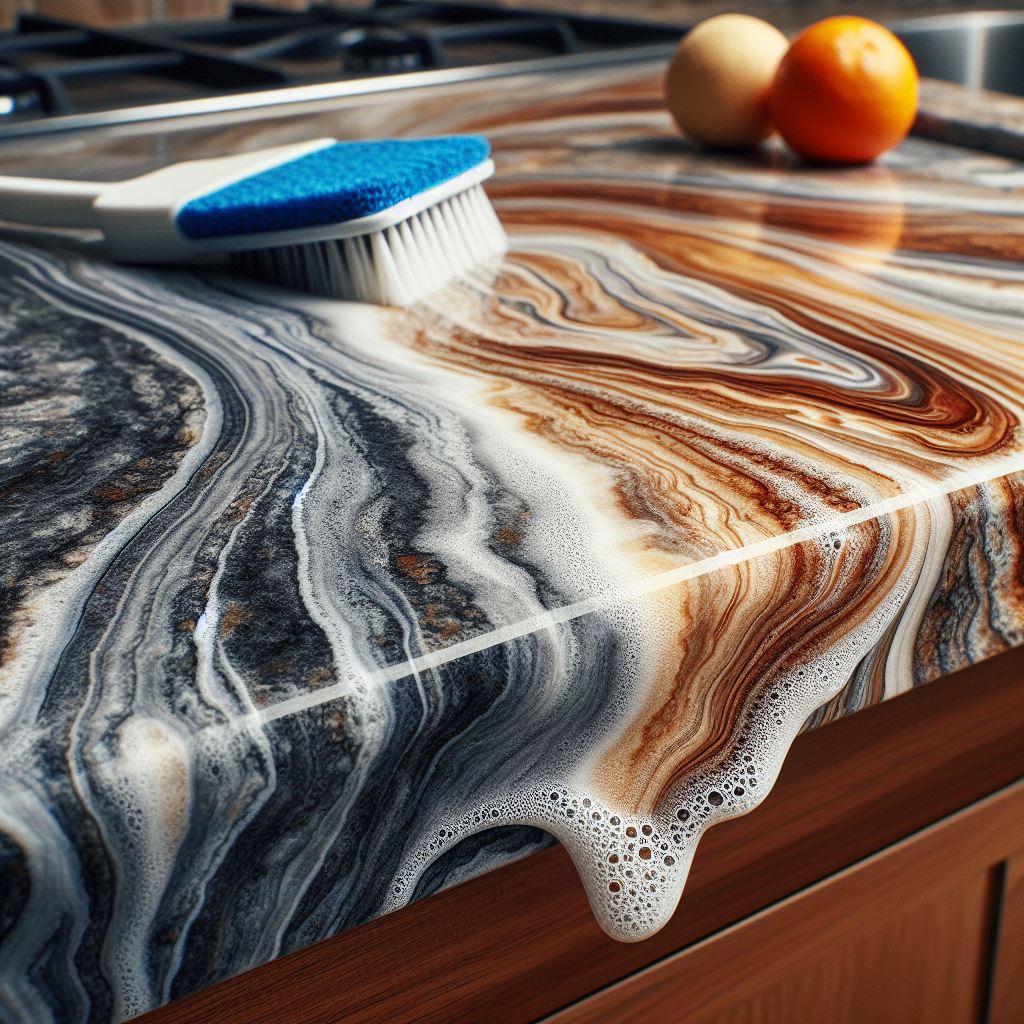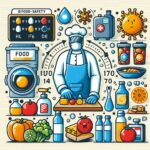Using oven cleaners on kitchen countertops can pose several risks due to the harsh chemicals typically found in these products. Here are the primary effects of oven cleaners on kitchen countertops:
- Surface Damage
- Chemical Residue
- Health Risks
- Material-Specific Risks
Protecting kitchen countertops is crucial to maintaining their longevity and aesthetic appeal. Many homeowners might not realize that the potent chemicals found in oven cleaners, designed to tackle tough, baked-on grime, can wreak havoc on countertop surfaces. Especially vulnerable are porous materials, such as natural stone or wood, which can absorb these chemicals, leading to discoloration, dullness, or even structural damage.
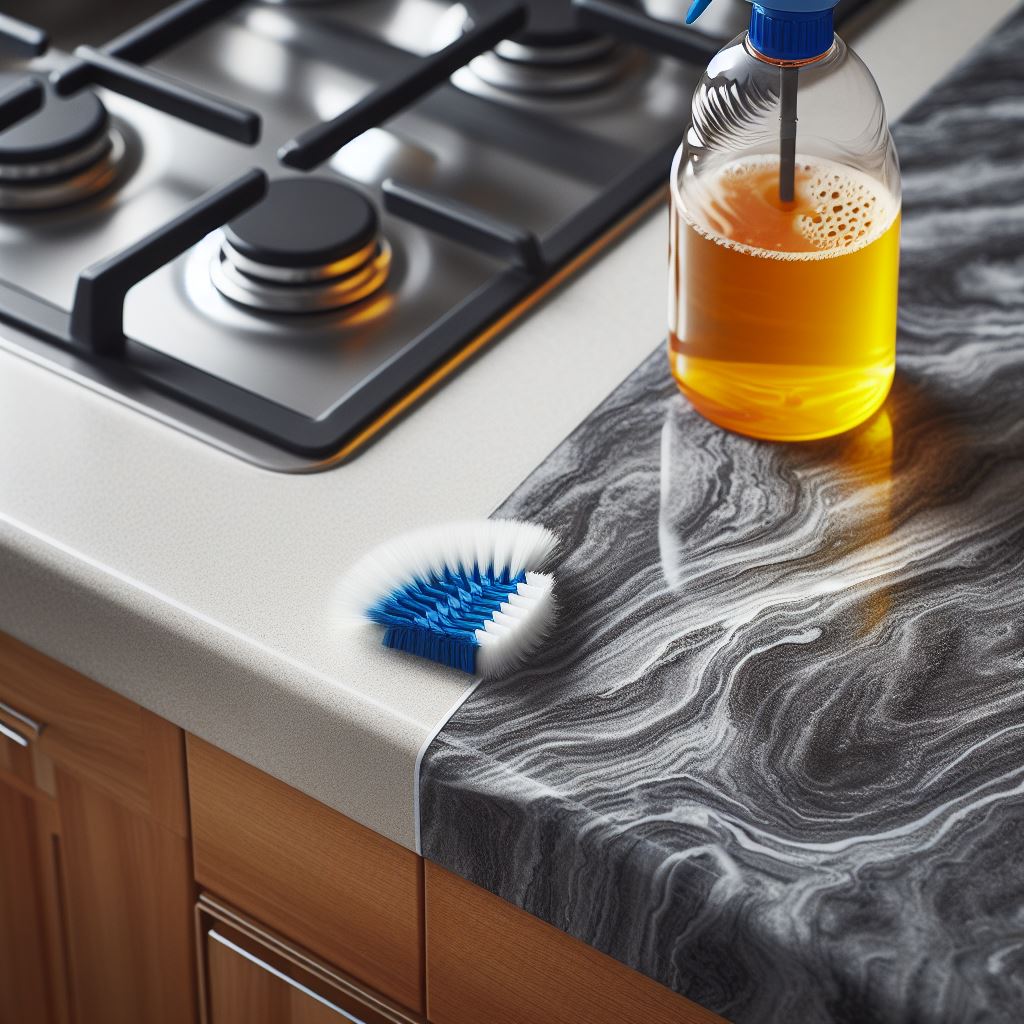
Overview Of Kitchen Countertops And Oven Cleaners
Kitchen countertops serve as essential platforms for daily cooking tasks. Made from materials like granite, marble, and laminate, they are durable and stylish. Oven cleaners, on the other hand, are potent formulas designed to tackle baked-on grease.
The typical oven cleaner contains chemicals such as sodium hydroxide and solvents. Their role is to break down tough grime, making cleaning easier. These ingredients are particularly formulated for the oven’s interior. They are not gentle on surfaces like countertops where different materials and sealants are present. Understanding their use is key to maintaining safe and pristine kitchen surfaces.
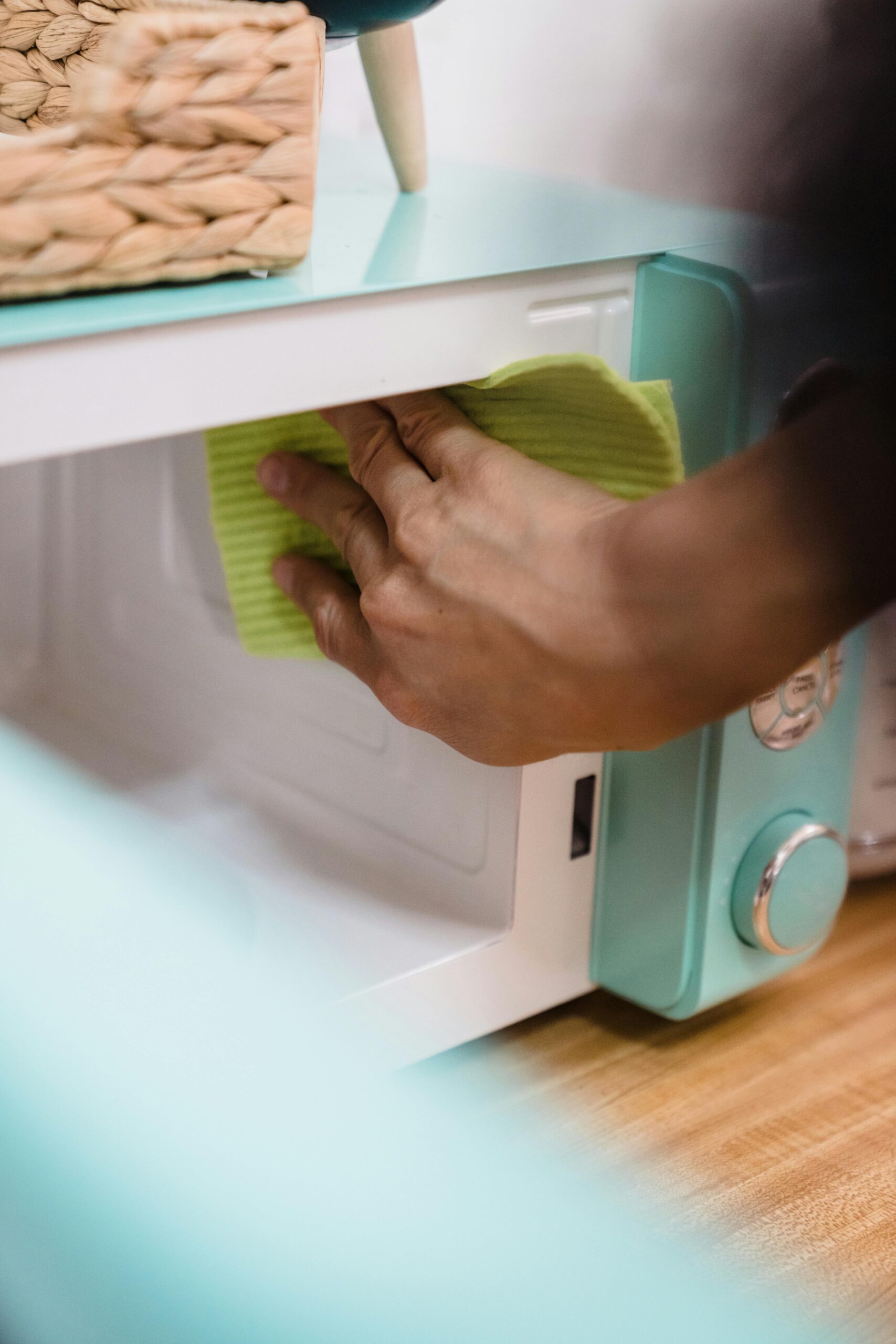
Potential Effect Of Oven Cleaners on Kitchen Countertops Materials
Oven cleaners can harm kitchen countertops made of natural stone, like granite and marble. The harsh chemicals in the cleaner may cause discoloration or etching. This damage often appears as dull spots or a loss of shine. Here are the primary effects and risks:
1. Surface Damage
- Discoloration: Oven cleaners often contain strong alkaline substances like sodium hydroxide. These chemicals can cause discoloration or staining, especially on countertops made of natural stone (e.g., granite, marble) or laminate.
- Etching: Acidic or highly alkaline cleaners can etch or dull the surface of natural stones, leaving permanent marks.
- Finish Damage: Glossy or polished finishes on countertops, particularly on materials like quartz or laminate, can be dulled or stripped by harsh chemicals.
2. Chemical Residue
- Toxic Residue: Residual chemicals from oven cleaners can be toxic and might contaminate food prepared on the countertop if not thoroughly rinsed off.
- Lingering Odors: Strong chemical odors can persist, making the kitchen environment unpleasant and potentially affecting the taste of food.
3. Health Risks
- Skin Irritation: Direct contact with oven cleaner chemicals can cause skin irritation or burns.
- Respiratory Issues: Fumes from oven cleaners can cause respiratory problems if inhaled, especially in poorly ventilated areas.
4. Material-Specific Risks
- Granite and Marble: These natural stones are porous and can absorb chemicals, leading to permanent damage.
- Laminate: The top layer can be eroded or discolored by harsh chemicals, leading to bubbling or peeling.
- Solid Surface (e.g., Corian): While more resistant, even these materials can be dulled or damaged by repeated exposure to strong chemicals.
- Quartz: Although engineered for durability, quartz countertops can still be susceptible to chemical discoloration or etching.
Safe Cleaning Alternatives And Preventative Measures
Kitchen countertops vary in material and sensitivity to cleaners. Gentle, non-abrasive agents are crucial for their upkeep. For granite, use a mix of water and mild dish soap. A solution of baking soda and water works well for laminate surfaces. Marble requires a specialized stone cleaner to prevent etching. Quartz responds well to mild detergents and quartz-specific products.
To prevent damage, never cut directly on countertops. Use cutting boards and mats. Wipe spills immediately to avoid stains. Do not place hot pans directly onto the surface. Stick to dish soap and warm water for regular cleaning. Use coasters for glasses and mugs.
Did you use oven cleaner on your countertop? Act fast with these steps:
- Rinse the area right away with water.
- Blot, don’t scrub, with a soft, damp cloth.
- For stubborn stains, seek a professional’s help.
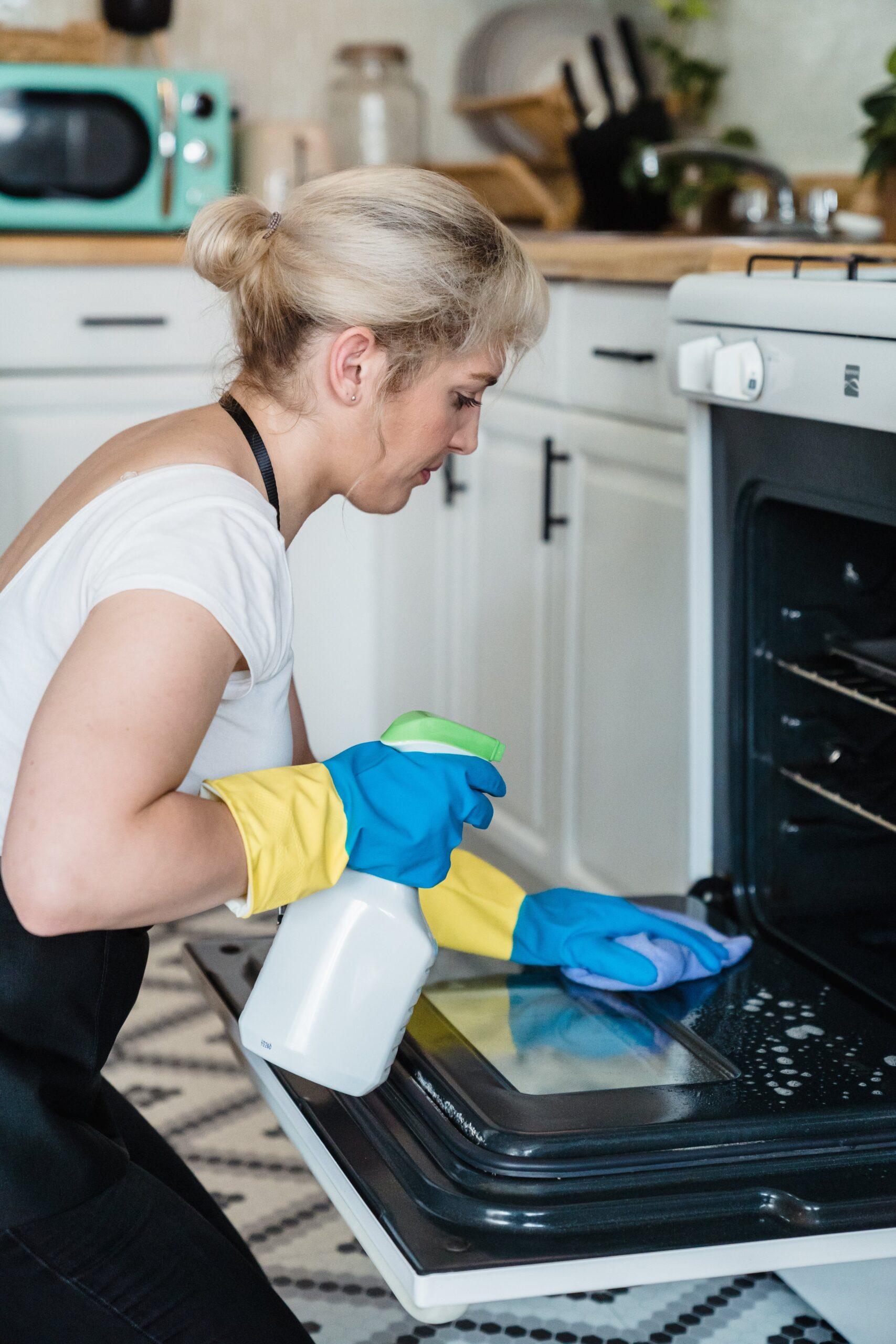
Understanding And Managing Accidents With Oven Cleaners
Oven cleaner spills on kitchen countertops can cause significant damage. The chemical composition of these cleaners is often harsh and corrosive. If spilled, it is crucial to act quickly. Gloves should be used to protect your hands. Blot the area with a damp cloth, avoiding rubbing, which can spread the chemical.
To further minimize damage, flush the area with water immediately. Baking soda can neutralize lingering acidity. Do not use other cleaners, as they may react negatively with the oven cleaner.
Fading or discoloration may signal need for professional restoration. Experts in countertop repair can assess the damage and recommend solutions. This may include polishing or resealing the countertop surface.
Check product labels and warranty information before using any oven cleaner. Understanding legal implications for accidental damage is important. Proper use of cleaning products can preserve both countertop and warranty.
Summary
Oven cleaners on kitchen countertops can cause significant damage due to the harsh chemicals they contain. These cleaners can discolor, etch, or dull surfaces, especially those made from natural stone, laminate, quartz, or solid surfaces like Corian. They can leave toxic residues that contaminate food, emit lingering odors, and pose health risks such as skin irritation and respiratory issues. To avoid these risks, it’s best to use mild, material-specific cleaning products, such as dish soap and water, baking soda paste, or vinegar and water solutions, to clean kitchen countertops safely.
Frequently Asked Questions Of What Is The Effect Of Oven Cleaner On Kitchen Countertops
Does Oven Cleaner Damage Kitchen Countertops?
Oven cleaners can indeed damage kitchen countertops, especially if the surface is made from materials like marble, granite, or quartz. The harsh chemicals in oven cleaners can etch the finish, dull the shine, and even cause discoloration if left on for too long.
What Countertops Are Safe With Oven Cleaner?
Generally, nonporous, chemical-resistant surfaces such as stainless steel or non-porous artificial countertops may withstand oven cleaner better. Always test a small inconspicuous area first and check the manufacturer’s recommendations to ensure safe use.
How To Safely Use Oven Cleaner On Countertops?
To safely use oven cleaner on countertops, apply a small amount on a less visible section to test for surface reaction. Refer to the cleaner’s instructions for proper use. Quickly wipe away the cleaner with a damp cloth to minimize potential damage.
Can Oven Cleaner Stains Be Removed From Countertops?
Oven cleaner stains may be removable depending on the countertop material and the severity of the stain. Quickly cleaning the spill and following up with a countertop-specific cleaner can help mitigate damage. For persistent stains, consider consulting a professional.

